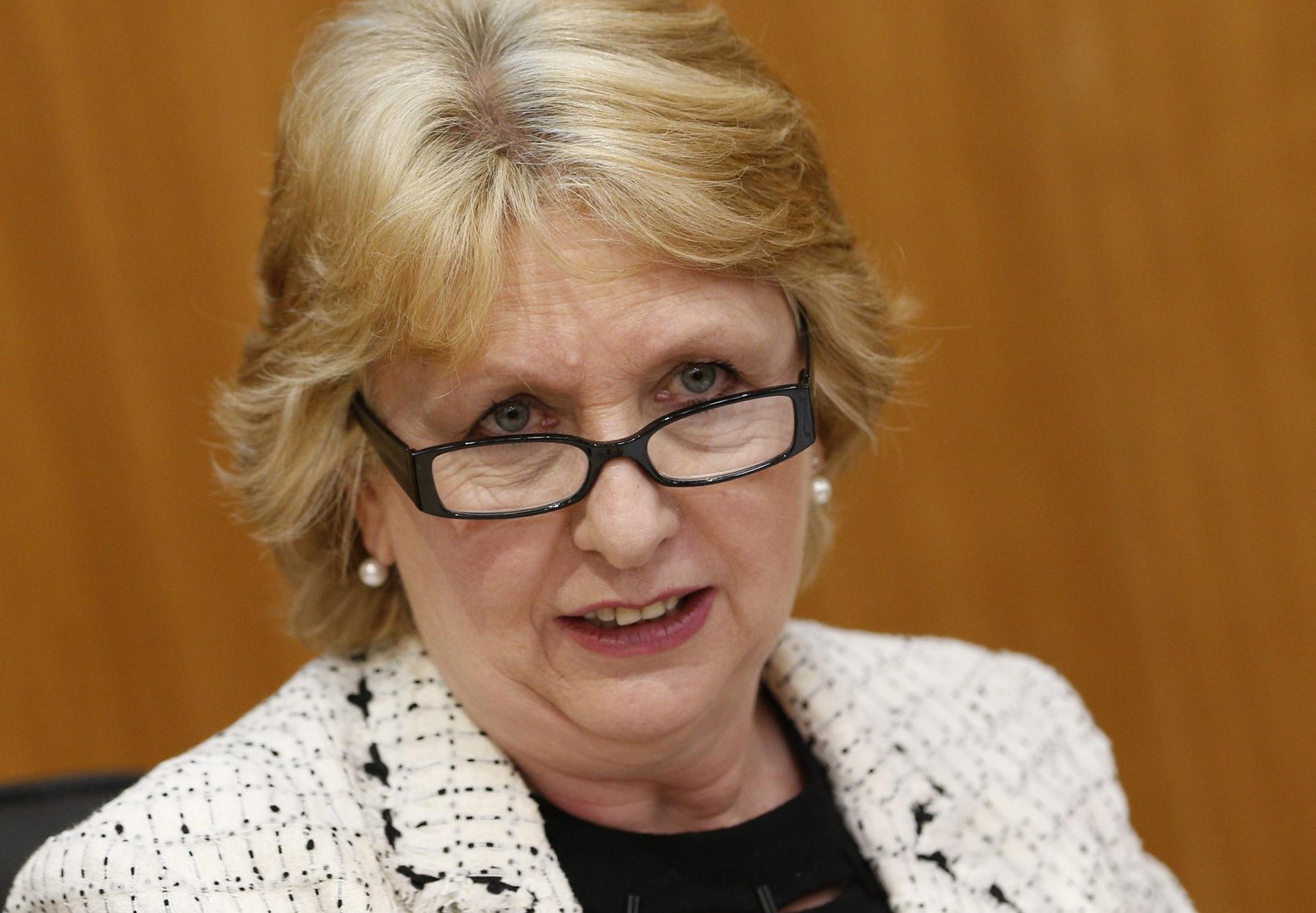LEICESTER, United Kingdom – Former Irish President Mary McAleese says she is pledging “to use whatever time is left to me” to challenge Church teachings on homosexuality and women.
Speaking to The View on BBC Northern Ireland on Thursday night, McAleese said, “What else I am going to do in retirement except make myself useful in that regard?”
McAleese, 69, served as president of Ireland – a largely ceremonial position – from 1997-2011.
She has clashed with Church leaders in the past and was barred from attending a conference taking place at the Vatican in 2018.
A longtime critic of the Church’s position on human sexuality, the former president, who has long described herself as pro-life, admitted she voted to change Ireland’s constitutional prohibition on abortion in a 2018 referendum.
In her interview with BBC Northern Ireland, she said she wasn’t a “hater of the Church,” and said spirituality was a “deeply beautiful thing” that shouldn’t be tainted by “exclusivity and elitism.”
McAleese said she wants to dedicate the rest of her life to challenging the Magisterium of the Church, defining it as “essentially the male bishops who regard themselves as the arbitrators of the Church’s teaching.”
“Large chunks of that teaching are appalling. Large chunks of it over history have been taught with great grandiosity and then have been found wanting, and they have managed to slink away quietly from them,” she said.
“I think … of its appalling history of anti-Semitism. It has resiled from anti-Semitism, as you would expect indeed after seeing where anti-Semitism leads after the Holocaust – God help us – sooner or later they will resile from sexism and homophobia because science and human rights will interrupt the integrity of their narrative, it no longer has any integrity for me,” she explained. “For me these are issues of human rights, I have a voice and I am going to use it for that purpose.”
Earlier this year, McAleese wrote Pope Francis threatening to quit the Catholic Church if it comes to light the Vatican “failed to act to protect members of the L’Arche community” – which works with intellectually disabled people – from the organization’s founder Jean Vanier, who was credibly accused of sexually abusing at least six women under the pretext of spiritual counseling.
During the interview, McAleese also discussed a Belfast Telegraph report saying that a quarter of female members of the Northern Ireland Assembly have been sexually harassed during their political life, and 70 percent have had sexist remarks made to their face by men.
“That is quite simply is unacceptable and it has to be outlawed,” she said.
“To think after all this time women who have made the push into politics against all the odds, have been successful, that they are still experiencing that level of low, low sexism,” McAleese told BBC Northern Ireland.
“It speaks of a stupidity. It speaks of an ignorance. It speaks of a miserly mindset that, honestly, we have all got to break through, but importantly, to challenge. There are men that need to challenge it when they hear spoken in the quiet places where it is said to them by people who think it is safe to speak in such a way. It is challenged by women standing their ground and insisting when they hear those things, on taking on the person who says it, and insisting on the apology and on outing them,” she continued.
“Because really the world we are moving into it has no place for and should have no place for that kind of sexism that is designed actually – it is not just designed to hurt the individual – it is designed to create a culture in which women will be disempowered: That good women – sensible, kind, decent, egalitarian people with good principles – will be kept out of politics because it will just be too raw, it will be owned, if you like, by people with very little moral scruple regarding sexism,” the former Irish president said.
McAleese said sexism has been “part and parcel” of her life and she has “the kind of skin” to tackle it wherever she encounters it, including in Rome. After leaving office, she studied canon law at the Pontifical Gregorian University, earning her doctorate in 2018.
“Yes, there is a lot of it around there, too. I am well used to it,” she said.
Follow Charles Collins on Twitter: @CharlesinRome











